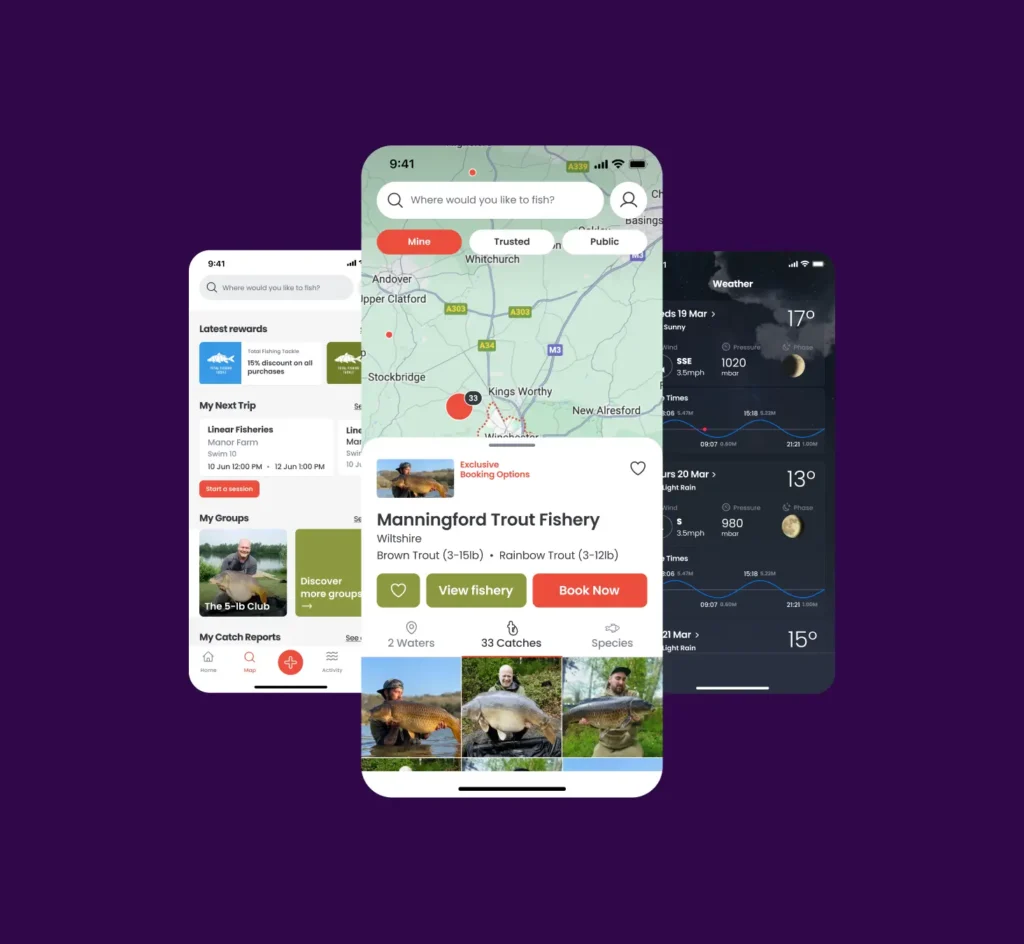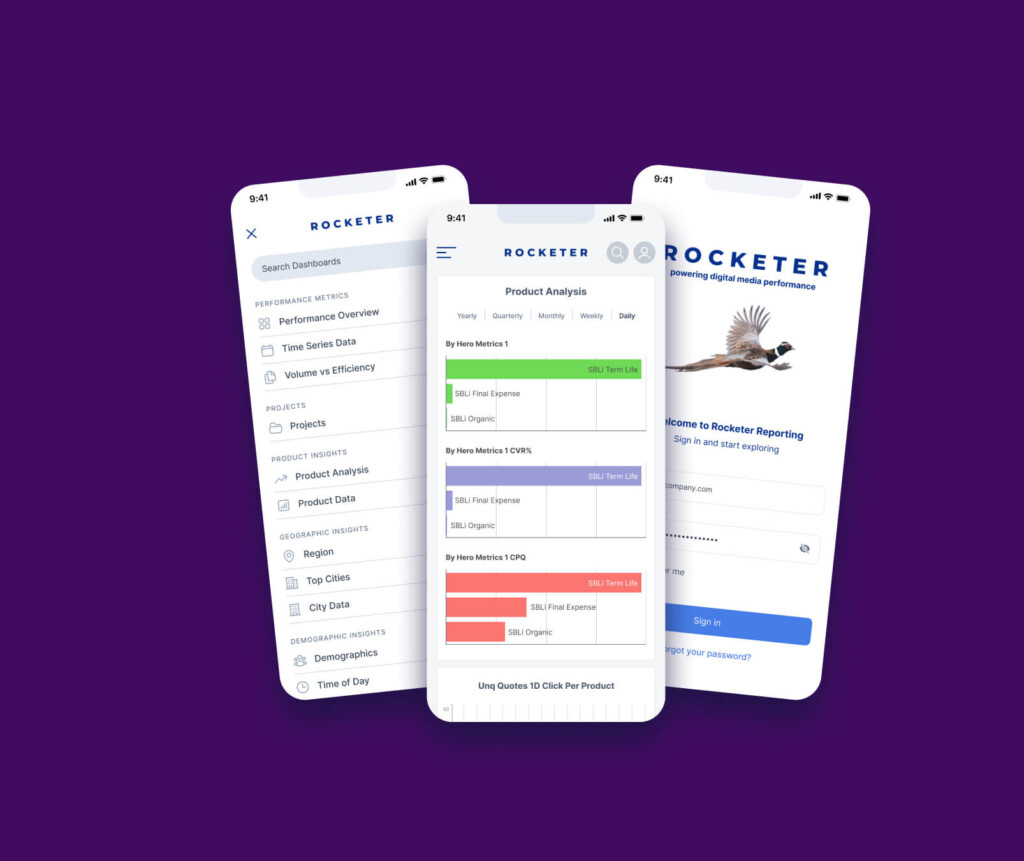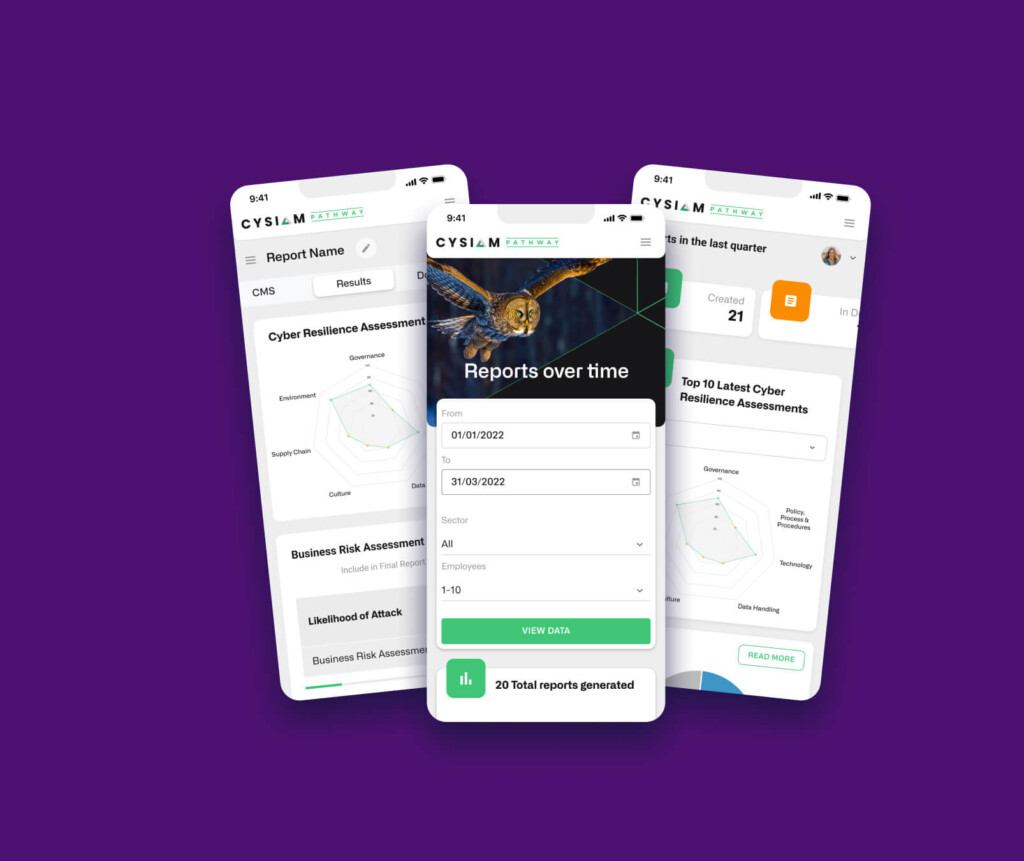MOBILE APP DEVELOPERS
Mobile apps work because they make the users life easy, no typing URLs, no waiting for pages to load, no hunting through tabs its just one tap and you’re in. That simplicity has changed user behaviours and check, order, book, scan and pay all by habit. These are the experiences we build every day, the apps that quietly in someone’s hand and do their job every single day.
We’re based in London and Surrey, working with founders and product leads across many sectors including Retail, Health, Leisure, education as finally B2B and B2C and have built apps for some of the worlds largest brands and a few you have never heard if.
The Difference Between Launching and Lasting
What Success Looks Like
Success is when people open it out of habit to perform a task, often many times a day without thinking twice. This happens when the experience is spot on and the technology is reliable.
Problems We Solve
App that are generally unusable app that cant cope with traffic or drains the battery, or it crashes all the time, maybe the use case is in usability or retention we fix all of these.
We Optimise
Launch is where to get see how real users behave and what devices they have and what they do. We monitor crashes, track usage, analyse funnels and roll out updates to maintain the KPIs.
App Ideas brought to life
CATCH
Helping Catch reshape the angling experience

ROCKETER
Bringing clarity to paid media performance

CYSIAM
Making cybersecurity assessments simple

What Our Development Team Does
iOS
We design and build native iOS apps built in Swift with Xcode, the way Steve Jobs intended, quick, smooth and everything you would expect from an Apple app.
iOS App DevelopmentAndroid
We build native Android apps in Kotlin that handle the performance and the quirks thats hundreds of different devices bring.
Android App DevelopmentCross Platform
When speed to market or budget matters more, we use frameworks like React Native or Flutter to build once and deploy everywhere.
Hybrid AppsENGAGING EXPERIENCES
What We Build
MVPs: These are early-stage mobile products built to prove either in the market for investors or the board. We focus on the essential features only, release it and quickly gather user behaviour data,
Consumer apps: These are mobile experiences built around daily habits, booking, dating, buying, sharing etc. These are designed around a sticky user experience to drive growth,
Enterprise & B2B apps: Secure, scalable mobile tools that connect internal teams with your internal data and custom workflows, all backed by the security of the enterprise.
Membership & loyalty apps: Apps designed to keep users coming back for more, whether its rewards, referrals or behaviour data for your CRM System,
Data & reporting apps: Custom dashboards and mobile tools that analyse complex data sources and display them as clear insights.
IoT & connected apps: Mobile apps that talk to devices, Bluetooth, Wi-Fi or sensors designed to increase the customer experience deliver real-time feedback.

THE DEVELOPMENT PROCESS
How We Deliver It
Discovery: We start by understanding the problem that app is supposed to solve, talking to users, mapping user journeys, and defining feature roadmap.
Design: We create simple, intuitive user experiences that make the app easy to use on any screen.
Development: We build maintainable code using modern frameworks and native languages. Each sprint delivers working software, tested and ready to use.
Testing: We stress-test on both simulators and on multiple devices across various networks and edge cases like randomly goign offline.
Launch: We handle everything from store submissions to analytics setup. Once live, we track usage and performance in real time to catch any early issues.
Ongoing support: After launch its important to monitor crash reports, performance logs and user behaviour data and fix what needs fixing.

WHAT OUR DEVELOPMENT TEAM THINKS
Our POV
Mobile applications really shine when they become part of a user routine, straddling the line between a download and a habit. We have seen lots of apps fail over the years and they all have common threads, they chased a new feature like AI without adding value, they entered a flooded market or they cut too many corners for a budget,
As Steve Jobs said, “You’ve got to start with the customer experience and work back toward the technology , not the other way around.”
The apps that last are the ones built around this real user behaviour, they do one thing and do it so well it becomes second nature, just think about Uber or AirBNB.
That level of usefulness doesn’t happen by accident, it comes from small choices made over and over again, after all it took Uber goes to get their flow right and AirBNB changed their whole business model.

The Tech We Build With
Mobile Apps
Native or cross platform mobile applications that are designed for everyday use
Mobile App DevelopersWeb Apps
Browser-based tools and dashboards that replace spreadsheets and legacy systems
Web Application DevelopmentReact Native
Cross platform apps with one codebase delivered onto two platforms
React Native DevelopmentBespoke Software
Custom apps and systems built around how you want your business to run
Bespoke Software Development CompanyFAQs
Questions we are asked before we are hired
How do you scope app work?
We start with a discovery phase and by asking questions, lots of question all around the initial concept and your business objectives and target audience and form a digital strategy. We then move onto personas, user journeys of the apps key features and the compliance that the app needs to adhere to. It’s an agile approach, working closely with your team to surface valuable insights.
Native or cross-platform?
You cannot beat the performance of native apps if you need access to the devices hardware, animations or are targeting a single OS. But if your building a quick prototype or dont have the budget of native and need something in the market sooner then cross platform app development with flutter apps or React Native provides a single codebase across both ios and android platforms.
How do you keep apps stable after launch?
You have to monitor everything, from App Store reviews, to crash reports and error logs and any user behaviour analytics. Our mobile app development team usually under a support and ongoing maintenance retainer handles bug fixes, dependency updates and performance tweaks.
What makes an app successful?
A successful app that feels simple to use takes a lot of effort and is planned around real behaviour, measuring user engagement and keep improving all metrics until it fits into someone’s daily routine. We have an experienced team behind us and there to hand hold you through the process.
How do you make apps easy to use?
There is not simple answer to this as each app is different, luckily today we have lots of reference app to pick and choose the best bits from, we did not have this 10 years ago, Essentially you need a user friendly interface that makes everything intuitive and easy to use, and you need lots of user testing on real devices to show were people get frustrated or drop off.
How do you manage development costs?
We operate on fixed scope fixed priced projects that are a result of our discovery phase, If we under price the app, we still deliver it as scoped on our dime. This way you get predictable development costs from our mobile app development services.
How long does it take to build an app?
This is strong correlated with how complex the project is along with its scope, A simple prototype might take four to six weeks, a larger build with multiple integrations and native iOS and android app development can run well into several months.
How do you handle updates and fixes?
We have ongoing support and maintenance plans, that allows our developers to handle small incremental and regular releases, Every update goes through user testing, performance checks, and store reviews before it’s live on google play or the App Store.
How do you make sure apps scale?
Whilst we can optimise the performance of the app itself, the real game of scaling usually sits with the backend developers. It’s the database, the logic, the APIs and the hosting environment that deliver the most value. They need to be optimised for caching, security and global reach through CDNs.
How do you design for different users?
We start by learning who’s actually going to use it and what features are useful to each persona. Then the designers take this brief to create interactive prototypes to test ideas and concepts, in the end we should have a user friendly interface that feels natural to different groups.
How do you handle integrations?
Most apps are essentially dumb terminals and rely on something else behind the scenes, whether its the app the data collects and displays or third party systems like payment gateways, IOT devices or internal system like your CRM system.
How do you make apps stand out?
We look for the thing your app does better or faster than anyone else. This might be smarter use of mobile technology, a tighter onboarding flow, a cleaner UX or something the market that has seen before.
We were going in circles until Ronins stepped in, they got us focused, showed us what mattered, and built a solution that didn’t rip out everything we’d already invested in.
Neil Rafferty
